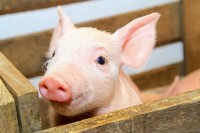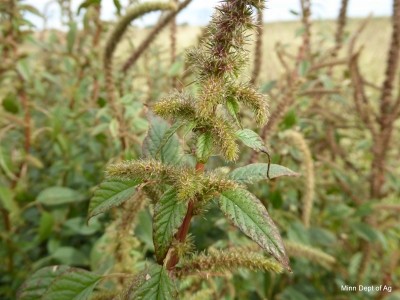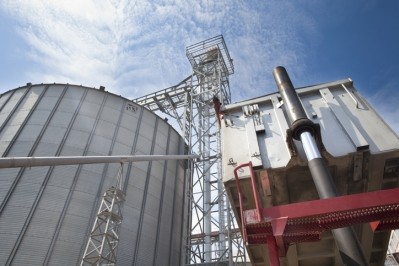Report: UK biosecurity at risk from Brexit

In a report published yesterday, the House of Lords EU Energy and Environment Committee highlighted that plant and animal diseases, and invasive non-native species, are a constant threat to the UK's ecology and economy. Some 300 different pests and diseases were intercepted at the UK border last year, it noted.
The committee warned that, after Brexit, the UK could lose access to vital EU alerts on animal and plant pest and disease threats, a development that could significantly compromise the UK’s biosecurity.
Currently, most decisions on how to react to biosecurity threats are made at an EU level. The UK also benefits from EU-wide intelligence gathering and disease notification systems, systems for tracing plant and animal movements, and coordinated research efforts. When the UK leaves the EU, it will no longer automatically be part of this framework, they said.
The committee identified at least seven areas where Brexit could lead to a shortfall in the UK’s biosecurity including:
- Information sharing;
- Capacity in the veterinary sector
- Inspections and audits;
- Access to research funding
- Enforcement of biosecurity legislation;
- Capacity within Government departments and agencies; and
- The legislative framework.
Data flow
The House of Lords committee is urging the UK government to seek continued participation in the EU’s notification and intelligence sharing networks.
The publication highlighted how the UK currently benefits from EU-wide alerts on diseases and pests that may pose biosecurity risks, through access to the Animal Disease Notification System (ADNS), the Rapid Alert System for Food and Feed (RASFF), the European Alien Species Notification System (EASIN NOTSYS) and the European Union Notification System for Plant Health Interceptions (EUROPHYT).
It also noted that all animals, plants, food, feed, semen and embryo traded within, or imported into, the EU have to be accompanied by documentation. TRACES is an online tool that manages this process,
"The required documentation is posted on TRACES in advance, pre-notifying countries that the consignment is due to arrive and allowing them to plan their controls in advance. Border control staff then check the consignments and certification. As well as speeding up the process, it allows all consignments to be traced. This makes it easier to respond to any disease outbreaks or other health threats."
James McCulloch, feed sector head, the Agricultural Industries Confederation (AIC), told FeedNavigator:
“Animal and plant diseases do not recognize national borders. European collaboration on information sharing and action plans have been fundamental to UK biosecurity for decades.
"It is vital that UK and European governments do not compromise on participation in international networks which protect citizens and food supply from disease threats.”
Lord Teverson, chairman of the House of Lords committee, said:
“The 2001 foot and mouth disease outbreak in the UK led to more than six million animals being slaughtered and is estimated to have cost over £8bn (US $10bn). The outbreak of Dutch elm disease that began in the 1960s destroyed millions of elm trees in the UK, and now there are fears over ash dieback and African swine fever (ASF).
These examples highlight how important biosecurity is, and the devastating impact that animal and plant diseases can have, he said.
“The existing arrangements are far from perfect but significant gaps will be created when the UK leaves them. We rely on the EU for everything from auditing plant nurseries and farms to funding our research laboratories."
The committee questioned whether the UK government would be able to have a replacement legislative framework, along with the monitoring, inspection and enforcement mechanisms, staff and IT systems to support it, by March 2019 when they would be needed in the case of a ‘no deal’ Brexit.
“The UK government has a huge amount of work to do to replace this system in time for Brexit, and failure to do so could have an economic and environmental impact that would be felt for decades to come.”
“This risks leaving the UK’s biosecurity seriously compromised.”
ASF spread
Reuters, meanwhile, is reporting that African Swine Fever (ASF), which first entered the Chinese market three months ago, has spread for the first time to the country’s south, its major pork-consuming region. The authorities were notified of two new cases in the southwestern province of Yunnan on Sunday.
China, which has the world's largest pig herd, has declared over 40 outbreaks of ASF in 11 provinces and municipalities, culling an estimated 200,000 pigs since the first outbreak. All cases had been in the north and eastern provinces until the first one in Yunnan at the weekend.
In Belgium, the government is said to be providing €1m for the culling of more than 4,000 commercial and domestic pigs in the African swine fever (ASF) infected zone in that country.
Belgian farming organisation, Boerenbond, reported that the funds will be used to reimburse the pig farmers for the culled animals and the operational costs involved. The EU Commission has already indicated that it will guarantee co-financing of 50% for the operation, which with a few weeks of the virus being discovered in wild boar in Belgium's Luxembourg region, near the French border.









